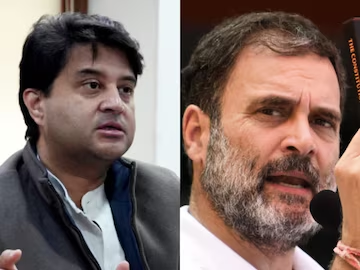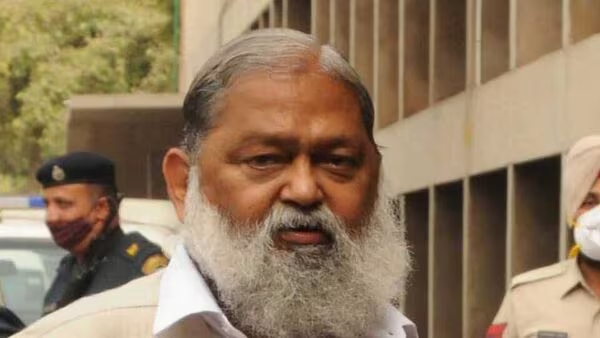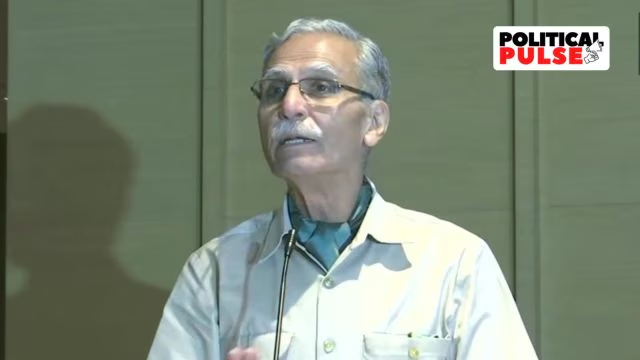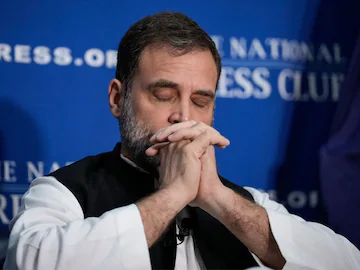Gandhi highlighted in a commentary published in The Indian Express that India was subdued by the East India Company, not due to its commercial acumen, but rather because of its suffocating dominance.
Criticism from royal descendants throughout India was directed at Congress leader Rahul Gandhi for his depiction of their forebears as “plaintive Maharajas” who fell prey to the destructive forces of the East India Company, resulting in the downfall of the nation. They deemed his grasp of history to be lacking in depth and accused him of displaying “selective amnesia” by conveniently overlooking the advantages he reaped from his own prestigious lineage.
Union Minister Jyotiraditya Madhavrao Scindia, a member of the prominent Scindia family that held power in Gwalior until India gained independence from British rule in 1947, expressed his views through a written statement. He highlighted the importance of acknowledging one’s privileges and criticized the lack of awareness shown by certain individuals. By questioning the authenticity of Congress’ motives, he emphasized that Rahul Gandhi does not embody the spirit of a self-reliant India but rather represents outdated entitlement.
Interpreting the Words of the Scions
Diya Kumari, the Deputy Chief Minister of Rajasthan and the granddaughter of Man Singh II, the final ruling Maharaja of Jaipur during the British Raj in India, criticized Rahul’s article as an effort to discredit the former royal families of India.
Vikramaditya Singh, once associated with the Congress party and the descendant of Maharaja Sir Hari Singh, the final sovereign of the princely state of Kashmir under the Dogra dynasty, criticized Rahul Gandhi for his limited grasp of historical events.
Lakshyaraj Singh Mewar, a descendant of the ancient House of Mewar in Udaipur, criticized the Leader of Opposition in Lok Sabha by emphasizing that despite the colonial divisions, royal families have consistently served as protectors of their populace and have significantly influenced India’s economic, cultural, and political development.
Chaitanya Raj Singh, part of the dynasty that once governed the former realm of Jaisalmer, refuted Rahul Gandhi’s assertions as unfounded.
The valor and selfless dedication of our families in upholding our principles are vividly evident in the affection shown to us by people across India, stretching from Kashmir to Kanyakumari and from Jaisalmer to Tripura. The courageous and principled individuals are unafraid, embodying a karma yoga mindset that embraces the harmony between humanity and nature.
Expressing her disapproval, Shrimant Gayatri Raje Puar, a prominent figure in the BJP and the spouse of the deceased Maharaja of Dewas Senior Tukoji Rao Pawar, criticized Rahul Gandhi’s editorial that tarnished the reputation of India’s Maharajas, revered as the stalwarts of Sanatan Sanskriti. These royal figures valiantly preserved our legacy, autonomy, and traditions, often bearing significant personal sacrifices to bestow upon us the concept of “अखंड भारत.” Neglecting this rich heritage amounts to a blatant disregard for our roots.
Mysore MLA Yaduveer Wadiyar, a descendant of the royal Wadiyar lineage, criticized Rahul Gandhi for consistently showcasing a lack of understanding of authentic history. Wadiyar expressed disapproval of Gandhi’s phrasing and implications in his article.
In the Op-Ed article, the statements made by Rahul Gandhi were highlighted.
Rahul Gandhi, Leader of the Opposition in the Lok Sabha, remarked on Wednesday that although the original East India Company ceased to exist more than 150 years ago, a fresh wave of monopolists has emerged, evoking similar levels of apprehension.
He claimed that the time has arrived for a “fresh opportunity for forward-thinking Indian enterprises”.
Gandhi mentioned in an editorial for The Indian Express that the dominance of the East India Company over India was not due to its commercial strength but rather because of its firm grip on the country.
He highlighted that the Company suffocated India by collaborating with, bribing, and intimidating compliant maharajas and nawabs.
He mentioned that a monopolistic corporation running a coercive apparatus took over our banking, bureaucratic, and information networks, resulting in the loss of our freedom not to another nation but to this entity.
He claimed that despite the dissolution of the original East India Company more than 150 years ago, the intense apprehension it once instilled has resurfaced.
Gandhi stated that in India, a fresh kind of monopolists has emerged, accumulating immense riches while the country has grown increasingly unequal and unjust for the rest of the population.
The former president of the Congress party highlighted that our establishments are now under the control of monopolists rather than serving the interests of the public. He pointed out that numerous businesses have been destroyed, leading to a significant lack of job opportunities for the youth in India.
Gandhi, in an article on X, raised thought-provoking questions about India’s future: Play-Fair or Monopoly? Jobs or Oligarchies? Competence or Connections? Innovation or Intimidation? Wealth for many or the few? He emphasized the importance of a New Deal for Business as not just an option but as a crucial path forward for the nation.










